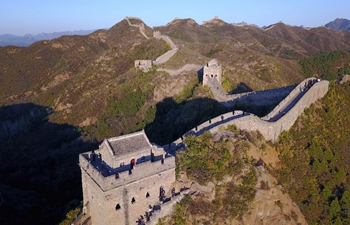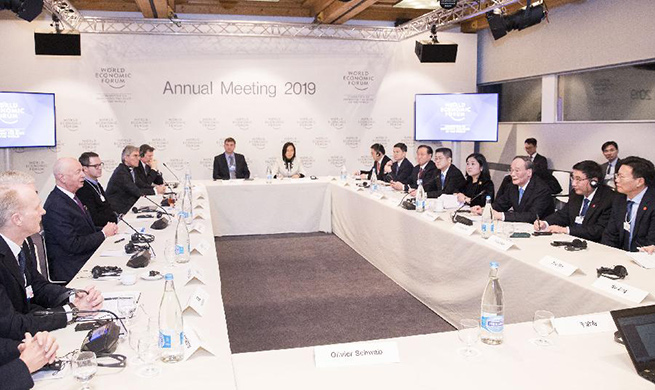DAVOS, Jan. 24 (Xinhua) -- Humankind's insatiable demand for electronic devices is creating the world's fastest-growing waste stream and opportunities at the same time, according to an article jointly published Thursday by two heads of UN agencies.
In the penned article, Houlin Zhao, Secretary-General of the International Telecommunication Union (ITU) and Guy Ryder, Director-General of the International Labour Organization (ILO), said that some forms of e-waste are growing exponentially and "the United Nations calls it a tsunami of e-waste."
E-waste is, however, not just a problem, but also an opportunity, they wrote on the same day when the chairman of China's Green Finance Committee, Ma Jun, outlined on a panel how China is fostering the financing of environmentally friendly projects.
"While more electronic devices are part of the problem, they also can be a big part of the solution," wrote Zhao and Ryder.
A more digital and connected world can help the world accelerate progress towards the United Nations Sustainable Development Goals (SDGs) for 2030, offering unprecedented opportunities for emerging economies.
They said that getting the process right will result in a lot less of the world's precious minerals, metals, and resources dumped into landfills.
"The benefit to industry and workers as well as the health of people and the environment could be enormous. It is crucial we swiftly employ a more circular vision in this sector," said the two UN leaders in their article.
"That's why tackling this issue head-on is now seen as a crucial task for a number of global agencies, including the ITU, the ILO, the UN Environment Program (UNEP) and other members of the E-waste Coalition," they said.
Ma Jun spoke at a panel Thursday entitled "Climate Leadership", whose members included Mark Rutte, Prime Minister of The Netherlands and Rachel Kyte, UN Special Representative for Sustainable Energy.
When he joined the People's Bank of China (PBOC), Ma launched a green task forced with 14 proposed actions "for the government to build what we call a green financial system" to channel money to the right sectors.
His task forced defined green loan, and green bonds that he believes are the first national-level definitions in the world.
To help the implementation of the actions Ma said, "We introduced a disclosure requirement. We said it is going to be a three-year action plan. The last step is that by 2020 all listed companies will have to disclose environmental information -- no excuses. It is not voluntary."
If successfully implanted, Ma said China would become the first large economy that will introduce a compulsory requirement for the environment and climate emission.

















